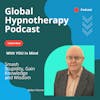Fast Paced World and The Crucial Role of Sleep
In the fast-paced world we live in, where productivity and achievement are highly valued, it's easy to overlook the importance of sleep in our lives. However, when it comes to maintaining a healthy and effective exercise plan, sleep plays a crucial role that should not be underestimated.
Picture this: you've committed yourself to a regular exercise routine, diligently hitting the gym, going for runs, or engaging in other physical activities to achieve your fitness goals. While exercise is undoubtedly vital for physical fitness and overall well-being, it is during sleep that the true magic happens.
First and foremost, sleep is a time for our bodies to recover and repair. When we exercise, we subject our muscles, tendons, and ligaments to stress, causing small tears and damage. During sleep, the body activates its restorative mechanisms, working to rebuild and strengthen these tissues.
Adequate sleep allows for optimal muscle recovery, leading to increased performance, decreased risk of injury, and improved overall exercise effectiveness.
Moreover, sleep plays a pivotal role in hormone regulation. When we sleep, our bodies release growth hormone, which is essential for muscle growth, tissue repair, and fat metabolism. Lack of sleep disrupts this delicate hormonal balance, leading to decreased growth hormone production and hindering our progress in achieving fitness goals.
Additionally, sleep deprivation negatively impacts other hormones, such as cortisol, which is associated with stress and muscle breakdown. By getting enough sleep, we can keep these hormones in check and maintain an optimal internal environment for fitness gains.
Furthermore, sleep has a profound impact on our cognitive function and mental well-being. Exercise and sleep are interconnected in a two way relationship. Regular physical activity can improve sleep quality, helping you fall asleep faster and experience deeper, more restorative sleep. On the flip side, adequate sleep enhances cognitive functions such as memory, focus, and decision-making, which are essential for maintaining motivation and adhering to an exercise regimen. Without proper sleep, you may find it more challenging to muster the energy and mental clarity required to engage in physical activity consistently.
Lastly, sleep influences our energy levels and exercise performance. Inadequate sleep can leave you feeling fatigued, lethargic, and lacking the necessary energy to tackle your workouts. Not only does this affect your exercise intensity and duration, but it also increases the risk of accidents and injuries due to decreased alertness and reaction times. On the other hand, getting enough sleep allows your body to replenish its energy stores, enhancing your stamina, endurance, and overall athletic performance.
In conclusion, sleep is a vital component of any exercise regimen. It promotes muscle recovery, hormone regulation, cognitive function, and energy restoration, all of which are crucial for achieving optimal fitness results. So, next time you're tempted to sacrifice sleep for more workout time, remember that prioritising quality sleep will ultimately benefit your exercise routine and contribute to your long-term health and well-being.





